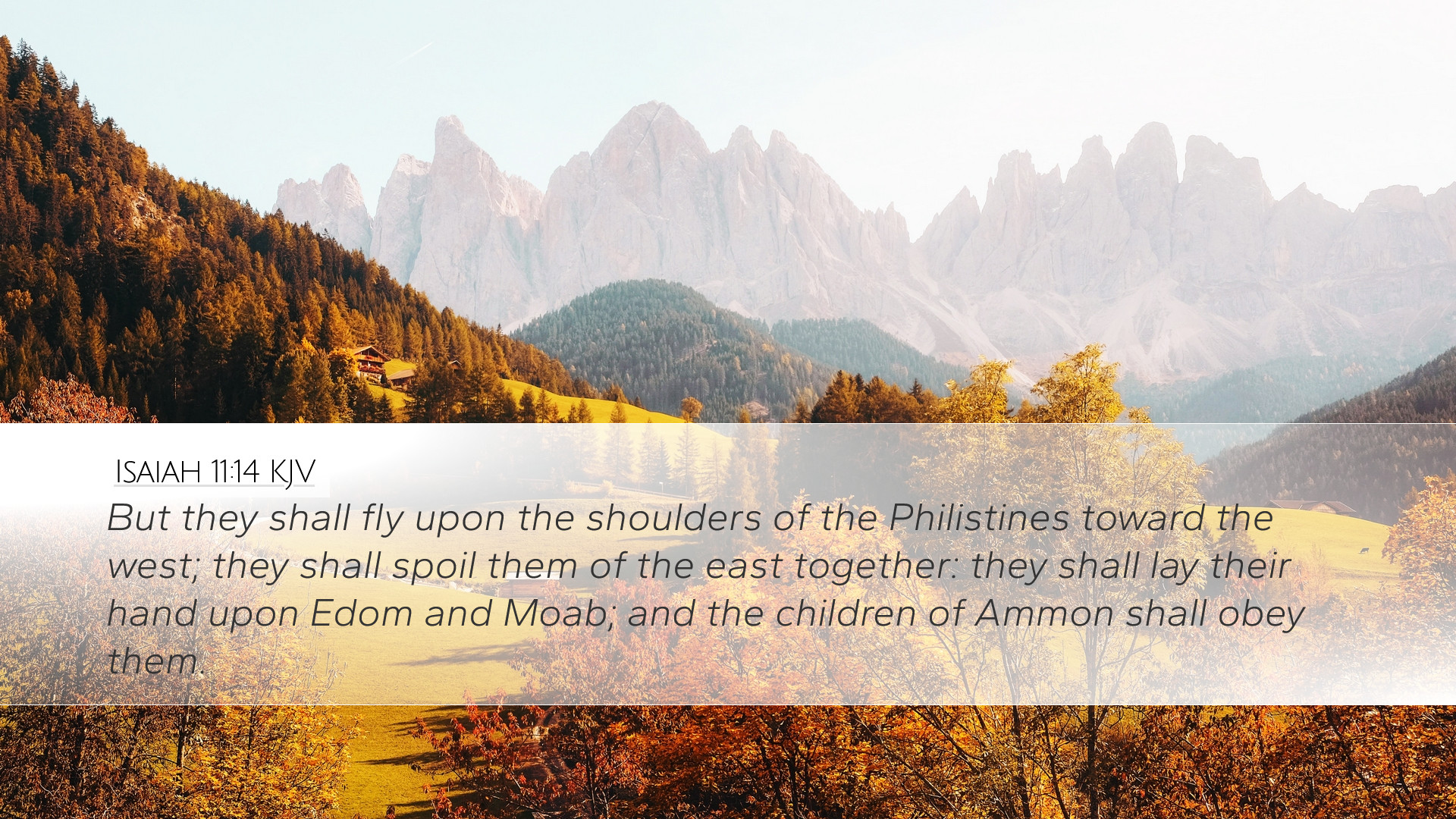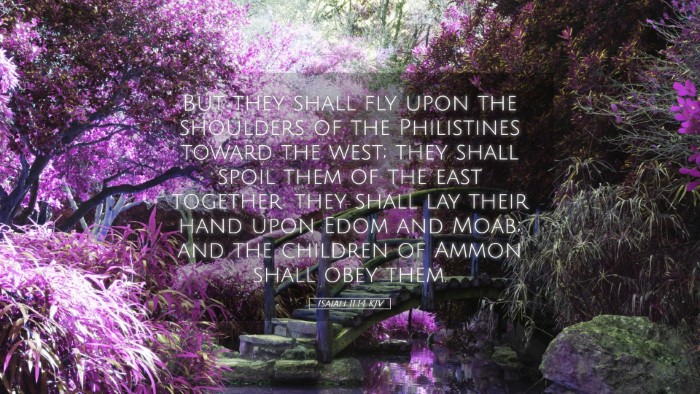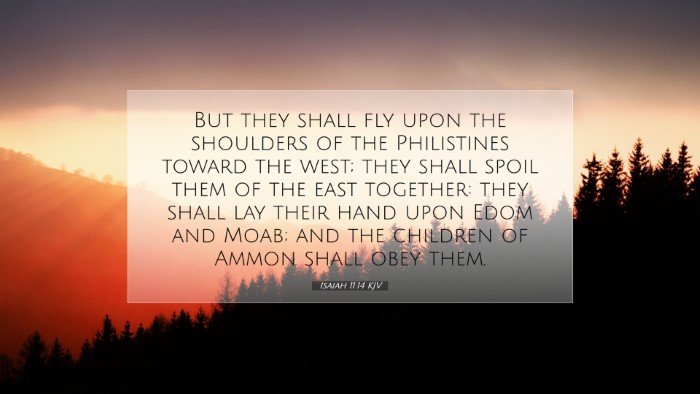Commentary on Isaiah 11:14
Verse Reference: Isaiah 11:14
This verse is rich in prophetic imagery, capturing the essence of God's promise of restoration and the unity of His people. Isaiah 11:14 reads:
"But they shall fly upon the shoulders of the Philistines toward the west; they shall spoil them of the east together: they shall lay their hand upon Edom and Moab; and the children of Ammon shall obey them."
Context of Isaiah 11
The eleventh chapter of Isaiah speaks of the reign of the Messiah, portraying a time of peace and righteousness. The preceding verses set the groundwork for understanding the significance of Isaiah's statements about the messianic kingdom, bringing hope amid the historical context of Israel's oppression.
Analysis of Key Themes
- Divine Restoration:
The imagery of flying on the shoulders of the Philistines indicates a divine empowerment. Matthew Henry emphasizes that God equips His people to triumph over adversaries, reflecting His sovereignty in guiding Israel's victorious path.
- Total Victory:
The notion of spoiling the Philistines and authoritative subjugation of Edom and Moab illustrates the comprehensive nature of God’s deliverance. According to Albert Barnes, this victory symbolizes not only military conquest but also spiritual triumph over sin and idolatry.
- Unity of God’s People:
Isaiah emphasizes a unified Israel, where previously divided peoples come together under the banner of God’s reign. Adam Clarke notes that the gathering of the children of Ammon exemplifies this unity, pointing toward a future where nations are reconciled under the Messiah's reign.
Historical Context
Understanding the geopolitical landscape of the time is crucial in interpreting this prophecy. The Philistines, Edomites, and Moabites were historical adversaries of Israel. Thus, the imagery used by Isaiah speaks to a profound change in fortunes and the establishment of peace in a previously hostile environment.
Theological Implications
- Messianic Fulfillment:
This passage is often viewed as foreshadowing the coming of Christ, who would inherently bring peace and reconciliation to all nations. The imagery of flying suggests an otherworldly speed and vigor that complements the nature of Christ’s mission.
- God’s Sovereignty:
The verse conveys a strong theological message: God’s sovereignty extends beyond Israel. With authority over nations, our God demonstrates His ultimate control over all creation. Both Henry and Barnes elaborate on this idea, affirming the hope that God will realize His promises to all humanity.
Practical Applications
This passage speaks to modern believers in significant ways:
- Assurance of Victory:
In times of struggle, believers can find solace in the assurance that God empowers His people to overcome adversarial situations, both spiritual and earthly.
- Call to Unity:
This prophecy emphasizes the importance of unity within the body of Christ. The Church is called to foster relationships that reflect the reconciliation exemplified in this passage.
- Trust in God’s Plan:
Joseph's hardships and struggles parallel the sentiments of those undergoing trials. Just as God orchestrated a plan for victory in Isaiah’s day, He is working toward a glorious resolution in the lives of believers today.
Conclusion
Isaiah 11:14 serves as a reminder of God's great power and the hope of reconciliation not only for Israel but for all nations. Understanding this passage invites deeper reflection on the character of God, the nature of His kingdom, and the transformative impact He seeks to have in the lives of His people. With insights drawn from Matthew Henry, Albert Barnes, and Adam Clarke, one can appreciate the multifaceted nature of this verse, finding both historical context and modern applications that resonate profoundly with the heart of the Gospel message.


